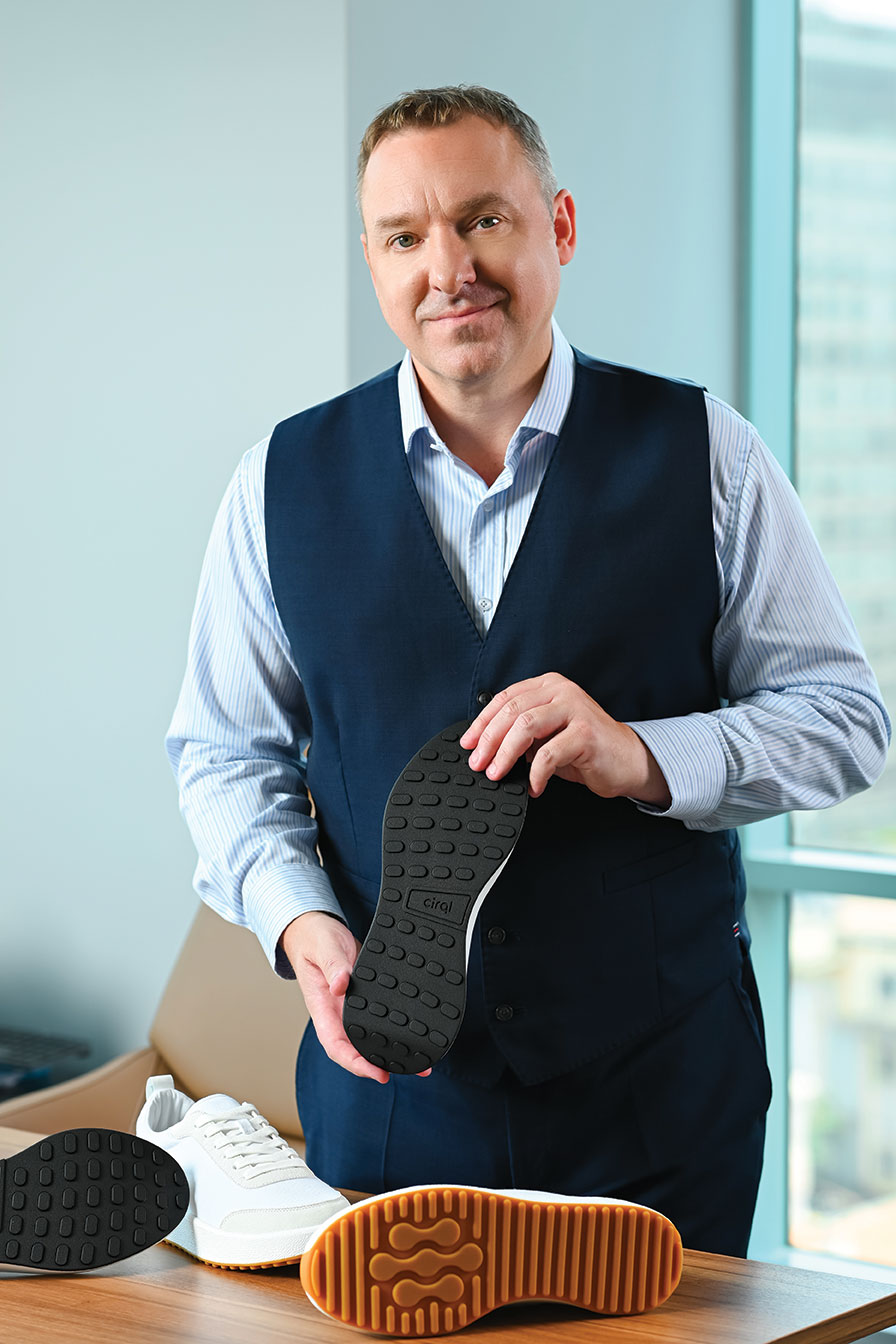
OrthoLite launched Cirql, a 100-percent biodegradable and compostable foam cushioning midsole alternative to EVA, to great fanfare in March 2022. It marked the start of addressing a really big industry problem: Every year, billions of shoes end up in landfills worldwide, most of which contain harmful, man-made plastics and glues that pollute the environment for millennia. There has to be more sustainable solutions.
OrthoLite is now taking that effort to the next level with the Q2 2024 debut of Cirql rTPU30, a patented material made with 30 percent post-consumer recycled TPU and manufactured through a chemical-free, super-critical foaming process. It includes a co-molded TPU outsole option, a glueless, single material bottom unit. (Cirql rTPU30can also be conventionally bonded to all current outsoles on the market.)
How big of a potential game-changer is Cirql rTPU30? Matt Thwaites, vice president and general manager of Cirql, believes it’s huge. “The challenge has always been to meet the required specifications for midsoles, which are very demanding with a product that contains post-consumer recycled materials,” he says. “We’ve worked hard to successfully bridge the gap with Cirql rTPU30, and there are new technologies emerging that will allow us to one day reach 100-percent recycled content while meeting the same performance specs as virgin materials.”
In the meantime, Cirql rTPU30 marks a big step toward that goal. Not only has the material received Global Recycled Standard (GRS) certification, the fact that it involves the midsole makes for a huge impact, according to Thwaites. Specifically, he says 30 percent recycled TPU by weight in the midsole is close to 100 percent by weight for an upper made of recycled content, like plastic water bottles. “That’s a lot!” he says, adding that the next step towards circularity will be to partner with brands on take-back programs and recycle the midsole and bottom units into a recycled polymer and back into midsoles. “This process will give us the closed loop circularity that’s been part of our vision since Cirql’s inception.”
Until then, every bit of plastic recycled and repurposed counts. “The common goal is keeping the waste out of the landfills and getting it to the recycling centers where they can process it into new materials for us,” Thwaites says. “We’re limited only by the amount of recycled material available.”
It’s one reason why Thwaites is confident many of OrthoLite’s 550-plus brand partners will opt for Cirql rTPU30 midsole/TPU outsole combination. It’s easier and cleaner. “One of the challenges of end-of-lifecycle recycling is dealing with mixed materials and adhesives,” he explains. “Our Cirql rTPU30 foam midsole molded to a TPU outsole is fully recyclable and eliminates the entire bonding process.” The durable TPU outsole should also last the lifetime of the shoe. “The manufacturing process uses less water and energy compared to conventional rubber, and it’s an automated process that reduces labor,” he adds. “We believe the co-molded outsole creates a lot of value for brands and consumers at a competitive price.”
OrthoLite is not blowing green smoke; all compliance standards and claims pass certified third-party tests. Cirql currently has 29 patents filed worldwide of which 16 are in effect. So far, so good on the feedback for Cirql rTPU30, Thwaites reports. “There’s a level of amazement that we can get this amount of recycled material into a high-quality and comfortable foam,” he says. “We’re expecting that the demand will be immediate.”



